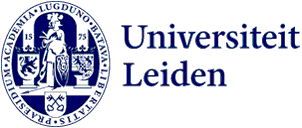
Alumnus Emma Govaart is fighting for equal opportunities for young people
Leiden alumnus Emma Govaart (24) wanted to make an impact on society, so she took a job in the non-profit sector after graduating. She now promotes equal opportunities for all young people. Because where you are born should not decide your future.
Emma Govaart studied Film and Literary Studies and did the Sociology and Islam: Religion and Society minors. While studying at Leiden she already knew that she wanted to work for an organisation with an impact on society. Soon after graduating, she was hired as a project officer at JINC in Amsterdam. That proved to be a good match. ‘I immediately felt a connection to the organisation’, says Govaart. ‘My background definitely has a bearing on this.’

Every child deserves a chance of a bright future
KIMC is a non-profit organisation that fights for a society in which your background does not define your future. Children aged between 8 and 16 from socioeconomically disadvantaged neighbourhoods take part in projects to help them get off to a good start in the world of work. Through JINC they learn about different professions, discover what work matches their talents and learn how to apply for jobs. ‘When people look at me, they see a highly educated white woman from a good background. That is a true impression now, but I come from a single-parent family with little money in a socially and economically deprived neighbourhood.’
A neighbourhood in which JINC − if it had existed at the time − would have been active. ‘My background means I appreciate the importance of resources that many children and young people do not have access to. I eventually got these opportunities but I’m increasingly aware that this is not a given for lots of children.’

Motivated to make something of her studies
For Govaart, studying in Leiden was the logical option. Her grandfather, someone she looked up to, was born there and studied there soon after the Second World War. He studied Dutch, and Govaart also loves language. She opted for Film and Literary Studies, and the literature specialisation. She felt at home at the university. Her focus was on her studies rather than on student life. ‘Because of my background, I always saw studying as a privilege. I was always motivated to make the most of it.’
After her first year, the Covid pandemic dominated her studies and this took a lot of independence and discipline. ‘Obviously, it was a weird time. Days on end in your room, watching lectures from your bed, hours at my desk, working on my thesis for hours. I missed enthusiastic lecturers like Peter Verstraten from the film track. I could listen to him for hours. It was a completely different experience online.’
Fortunately for Govaart, she could hang out with her friend Simone Scholte during the pandemic. ‘We wrote papers together and studied together. It was nice to have someone to bounce ideas off and not to be isolated.’
The main lesson she learned from her studies, one that she uses all the time in her work, is to use language as an instrument. ‘In literary studies, I learned to look critically at texts. Everything is written from a certain perspective. That also applies to the language you use. How do you approach people? How does language play a role in the tone and flow of a conversation? Those are valuable lessons.’
Text: Margriet van der Zee
